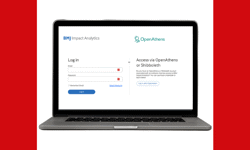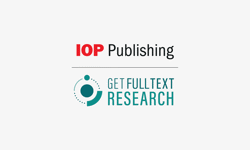
For example, do you know how many people are accessing your content – and where they are from?
Many thousands of people all over the world might want to use your digital content if they can find and access it easily. To gain the widest possible reach and impact, publishers often opt for a federated single sign-on solution. It means users can navigate to interesting content seamlessly when they find it through an online search. They just use their organisational credentials to access it without having to sign in multiple times. If their library subscribes to a resource – they’re straight in.
A federated solution can also minimise the risk of unauthorised access to content. If it uses security assertion markup language (SAML) to exchange authorisation data, publishers can be reassured that would-be users without the right permissions won’t gain access. It effectively protects valuable assets. And for publishers and content providers who find that SAML doesn’t integrate easily with their existing systems, there’s a potential answer in OpenID Connect (OIDC) software as a simpler way to participate in SAML federations. Frequently, publishers will find they already use OIDC in their current systems; it is API-friendly and works well in native and mobile apps (it’s what social logins typically use).
Do you have clear insights into the kinds of people who use your resources?
With a federated access solution, you can not only extend your reach to a much wider audience but also gather essential data about how many users you have and who they are. Not their individual identities, of course – private details remain safely off-limits. Typically, though, publishers have access to anonymised user data and can create secure profiles to track interests and preferences. This brings opportunities to enhance user experience (UX) with features like saved searches, annotation and suggested further content, to enhance users’ workflows and keep them coming back while preserving their personally identifiable information (PII).
Do you have enough evidence to back up conversations with subscribers at renewals time?
If you have good, granular data, you can see not only how many people are accessing your content but also whether they’re students or staff, if the numbers are increasing, decreasing or changing in other ways over time. You can discover where users are, perhaps identify new sales possibilities in a particular type of organisation where interest is strong. Often, you can have the data broken down by country or region. Ideally, you can see data that could be used to identify when and where you’ve had ‘turnaways’ (potential users who couldn’t access the content because their organisation didn’t have a subscription). All this information can help you sell more effectively and support conversations about whether a subscription’s price should change.
It might also help you nurture your ongoing relationship with the customer. Rather than being merely a ‘once a year’ contract negotiation, you could proactively offer help with training or promotion. Leveraging your data in this way could help your customers’ library staff bring content to more people, get value for money and evidence their own effectiveness.
Do you have your data in various silos and incompatible formats?
At OpenAthens, we work closely with publishers. We see how hard the vast majority work to develop and package their content to give end users what they need and maximise value for subscribers. It can be time-consuming and expensive. Usually, this involves pulling data from multiple sources in various formats, so it is very easy to lose information and miss out on valuable knowledge.
For a long time, this has been a problem with no easy answer. One option might be to try to build a solution in-house and bring everything together in a single reporting tool, but without specialist expertise, this can be hard. A safer choice could be a proprietary solution or one of the open source options out there. However, experience has shown these aren’t always easy to implement or to interrogate for actionable insights.
What publishers really need is a reporting tool that presents rich, granular user information via an interface that’s simple to use even for those without hard-won analytics experience. When data is easy to visualise and analyse, publishers can get cracking on gaining an edge in a highly competitive marketplace.

About us
OpenAthens is a leading provider of federated single sign-on services worldwide, enabling end users to access content and resources remotely from any location. Its Keystone solution allows publishers to use the simple OpenID Connect software to participate in SAML federations around the world and easily allow institutional access to content. Keystone’s new reporting tool collates all federated traffic data and presents it via a dashboard that makes it easy to gain useful insights.
Website: www.openathens.net
Tel: 020 3880 2626
Email: contact@openathens.net










